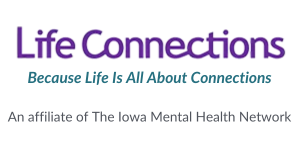The food we consume doesn’t just impact our physical health; it also has a profound effect on our mood and mental well-being. Research shows that there is a strong connection between our diet and our mental health. By understanding how diet affects our mental health and mood we can make conscious choices about what we eat, how we nourish our minds and bodies, and promote better mental well-being.
Let’s explore explore how diet affects mental health and discuss the importance of making mindful dietary choices:
- The Gut-Brain Connection: The gut and the brain are intimately connected through the gut-brain axis. A healthy gut microbiota promotes the production of neurotransmitters like serotonin, which influences mood, and helps reduce inflammation in the body, which is linked to mental health disorders.
- Nutrients for Mental Well-Being: Certain nutrients are vital for maintaining optimal mental health. Omega-3 fatty acids, found in fatty fish, walnuts, and flaxseeds, have been associated with a lower risk of depression and improved cognitive function. B vitamins, found in whole grains, leafy greens, and legumes, support brain health and help regulate mood. Antioxidant-rich foods like fruits, vegetables, and nuts protect the brain from oxidative stress, reducing the risk of mental decline.
- The Impact of Sugar and Processed Foods: Consuming excessive amounts of sugar and processed foods can have a detrimental effect on mental well-being. Research suggests that a high intake of added sugars and processed foods is associated with an increased risk of depression and anxiety.
- Mindful Eating and Emotional Well-Being: Practicing mindful eating involves being fully present and aware of our food choices, eating habits, and the sensations we experience while eating. Slowing down, savoring each bite, and paying attention to hunger and fullness cues can help us develop a healthier relationship with food.
- Hydration and Mental Clarity: Staying properly hydrated is essential for mental clarity and well-being. Drinking an adequate amount of water throughout the day supports optimal brain function, helps regulate emotions, and improves overall mental performance.
- Individual Differences and Personalized Approach: It’s important to recognize that everyone’s dietary needs and tolerances may differ. Some individuals may have specific sensitivities or dietary restrictions that impact their mental well-being. Consulting with a healthcare professional or registered dietitian can provide personalized guidance and help identify any dietary factors that may be affecting mental health.
In conclusion, the food we eat has a significant impact on our mood and mental well-being. By prioritizing a nutrient-dense diet, supporting a healthy gut microbiota, reducing sugar and processed food intake, practicing mindful eating, staying hydrated, and considering individual dietary needs, we can nurture our mental health from within.
Because Life is All About Connections
Life Connections provides mental health services in our 13 office locations and approved schools across Iowa. Life Connections was founded in March of 2009 with the intent to serve the children and families of Cedar Rapids and surrounding cities.
Life Connections is a highly professional and caring counseling and behavioral health provider. We offer a wide array of services to treat mental health issues.
For more information and support, please Contact Us
Start Your Services
Start Mental & Behavioral Health Services with Life Connections | Because life is all about connections.

